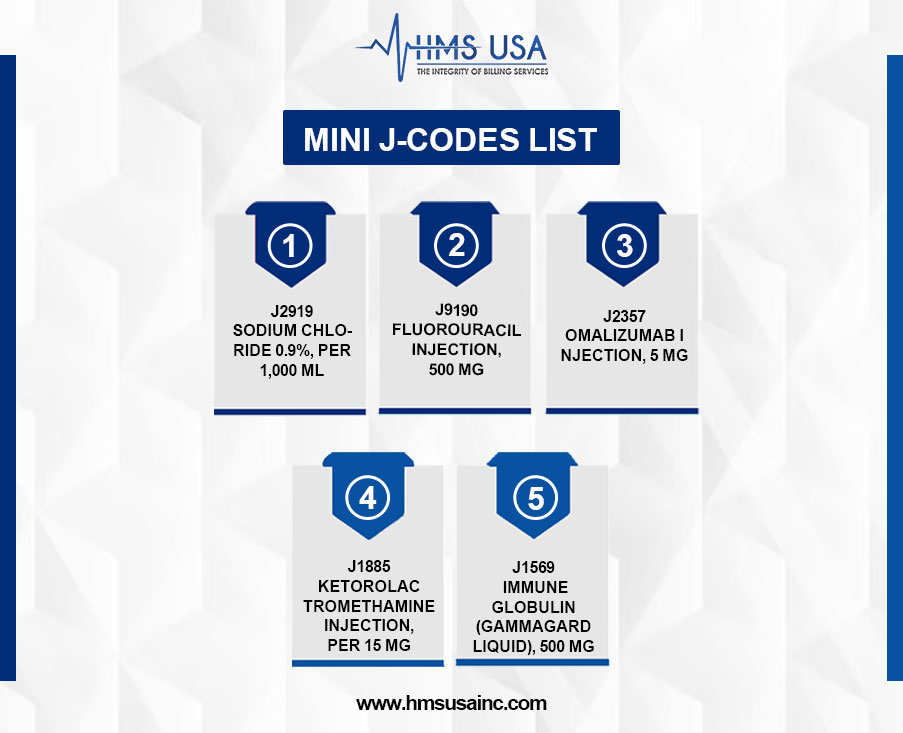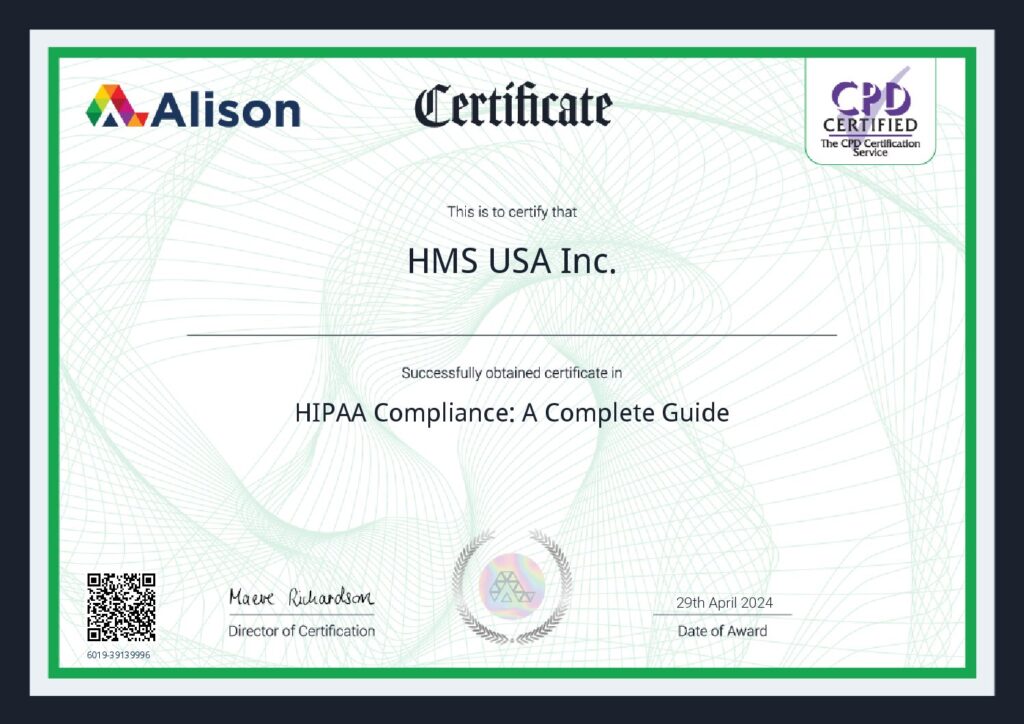J codes are very important for accurate coding, which is the key to successful medical billing. These specific HCPCS codes are used to identify injectable medications and biologics. This makes sure that physicians get paid correctly, claims are accepted quickly, and patient records stay correct.
Understanding J codes in medical billing is very important for outpatient and physician office settings since it helps make things run more smoothly, cuts down on billing mistakes, and leads to improved patient care.
If you work in billing or healthcare, you need to know J codes to keep your revenue cycle healthy and in line with the law.
What are J Codes in Medical Billing?
J codes are a set of alphanumeric codes (beginning with the letter “J”) used in medical billing to represent drugs and other injectable substances that are typically not self-administered. These codes describe the drug name, dosage, and route of administration, allowing payers to understand what was provided to the patient.
J codes are part of the HCPCS Level II coding system, maintained by the Centers for Medicare & Medicaid Services (CMS). While Level I includes CPT codes for procedures, Level II covers non-physician services such as medications, supplies, and durable medical equipment.
When and Why J Codes Are Used
J codes are used to bill for outpatient drugs and injections administered by healthcare professionals in settings like:
- Hospital outpatient departments
- Ambulatory surgical centers
- Physician offices
They are essential for billing Medicare, Medicaid, and private insurers for drugs given during visits, for example, chemotherapy or injectable biologics.
Each J code corresponds to a specific drug and dosage, ensuring accurate reimbursement. J codes make drug billing easier, improve the accuracy of coding, and help outpatient care facilities follow the rules.
How J Codes Work in Medical Claims
J codes, which are a part of HCPCS Level II, are alphanumeric codes used to bill drugs and injectable substances in outpatient settings. Integrated into EHRs and billing systems, they improve documentation accuracy and accurate communication between clinical and billing teams, reducing errors and delays.
Essential for Medicare and commercial insurers, J codes identify non-retail drugs like in-office injectables. Accurate use ensures proper reimbursement, supports audit readiness, and promotes compliance. Each J code is tied to a specific drug and dosage—incorrect coding can lead to claim denials or audits.
Frequently Used J Codes (e.g., J2919)
J2919 refers to Injection, sodium chloride 0.9%, per 1,000 mL, commonly used in outpatient infusion therapy. Accurate coding of J2919 ensures proper reimbursement for IV saline administration.
J codes represent injectable medications used in chemotherapy, immunotherapy, pain management, and more. Each code corresponds to a specific drug, dosage, and administration route.
Examples include:
- J9190 – Fluorouracil, 500 mg (chemotherapy)
- J2357 – Omalizumab, 5 mg (immunotherapy)
- J1885 – Ketorolac tromethamine, per 15 mg (pain management)
Mini J-Codes List
J Code Description
- J2919 Sodium chloride 0.9%, per 1,000 mL
- J9190 Fluorouracil injection, 500 mg
- J2357 Omalizumab injection, 5 mg
- J1885 Ketorolac tromethamine injection, per 15 mg
- J1569 Immune globulin (Gammagard Liquid), 500 mg

Choosing the right code makes sure that you follow the rules, get paid correctly, and make billing easier.
Tools and Resources for J Codes Lookup
J codes, a subset of HCPCS Level II codes, are primarily used for billing drugs and biologicals administered in an outpatient setting, such as injections or infusions.
To ensure accurate billing, healthcare providers must use precise resources for J code lookup. Common tools include:
- CMS HCPCS Level II code sets
- AMA CPT Assistant and Medicare Administrative Contractors (MACs)
- Online drug compendia and coding databases (e.g., Codify, Find-A-Code)
- Billing software with integrated J code directories
These resources help coders and billers avoid claim denials by aligning medication details with the correct J code.
How to Use a J-Code Lookup by Drug Name
J-code lookup tools simplify code identification. Trusted platforms let users:
- Enter a drug’s generic or brand name
- View matching J-codes with descriptions, dosages, and billing units
- Cross-reference with NDC numbers for accuracy
For example, searching “Immune Globulin” may yield multiple codes based on formulation and administration, so reviewing each result carefully is essential.
Tips for Accurate J-Code Selection
To ensure correct billing:
- Match dosage and administration route with the code description
- Confirm FDA approval and CMS coverage
- Be aware of bundling rules and applicable modifiers
- Follow your MAC’s regional coding guidelines
Even minor coding errors can lead to claim denials or audits, so accuracy is important.
J-Codes for Injections – A Quick Overview
J-codes are part of the HCPCS Level II system and are used to report injectable drugs administered in outpatient settings. These alphanumeric codes help providers bill accurately for medications such as vaccines, chemotherapy, and IV therapies.
Each J-code corresponds to a specific drug, dosage, and form—ensuring correct reimbursement and streamlined claims processing. For example, J2919 represents immune globulin (Gamunex-C/Gammaked), while J3490 is used for unclassified drugs.
Proper use of J-codes supports compliance, reduces denials, and ensures payment for physician-administered medications. Always verify the latest code descriptions and billing units using reliable resources like CMS updates or coding software.
Understanding the J2919 CPT Code Description
J2919 is a widely used J code that refers to Injection, immune globulin (Gamunex-C/Gammaked), non-lyophilized, 500 mg. It is typically administered to patients with conditions such as primary immunodeficiency, chronic inflammatory demyelinating polyneuropathy (CIDP), and immune thrombocytopenia (ITP).
When billing for J2919, providers must report the correct number of 500 mg units based on the administered dosage and include appropriate supporting documentation, such as diagnosis codes and physician orders. Payer-specific billing guidelines, particularly for Medicare and Medicaid, must be followed.
Due to the high cost of immune globulin products, payers often review these claims closely, making accurate coding, clinical justification, and compliance with local coverage determinations (LCDs) critical for reimbursement.
Importance of Staying Updated with J Codes
Medical billing regulations frequently change, and J codes are regularly updated to reflect revised descriptions, unit measures, newly added or deleted codes, and changes in reimbursement policies.
To stay current, providers should consult sources such as CMS HCPCS quarterly updates, Medicare Learning Network (MLN) articles, AMA CPT/HCPCS codebooks, and subscription-based coding platforms that offer update alerts.
Why Staying Updated Matters
Using outdated J codes can lead to claim denials or compliance issues. Regular updates and staff training help:
- Ensure accurate documentation
- Prepare for audits
- Improve revenue cycle performance
Final Thoughts
J codes are very important for medical billing, especially for biologics and injectable J-codes for drugs. Correct use of these codes:
- Ensures that payer rules are followed
- Stops billing mistakes that cost a lot of money
- Increases the rates of claim approval and reimbursement
To get the best billing results, healthcare providers and billing professionals should use dependable J code lookup tools and stay up to date on code changes.
Ensure Precise Coding with HMS Group Inc.
This guide covered the role of J codes in medical billing, their significance, and how they function. We also highlighted key considerations when using these codes. While grasping the basics of coding standards is manageable, the real challenge lies in applying J codes correctly to secure proper reimbursement for medications provided during treatment.
If you’re unsure about accurately handling J code billing due to limited expertise, it might be time to consider working with experienced professionals like HMS Group Inc.
Our team includes expert billing specialists and certified professional coders (CPCs) who understand the complexities of J code reporting. We help ensure your healthcare practice receives timely and accurate reimbursements.











